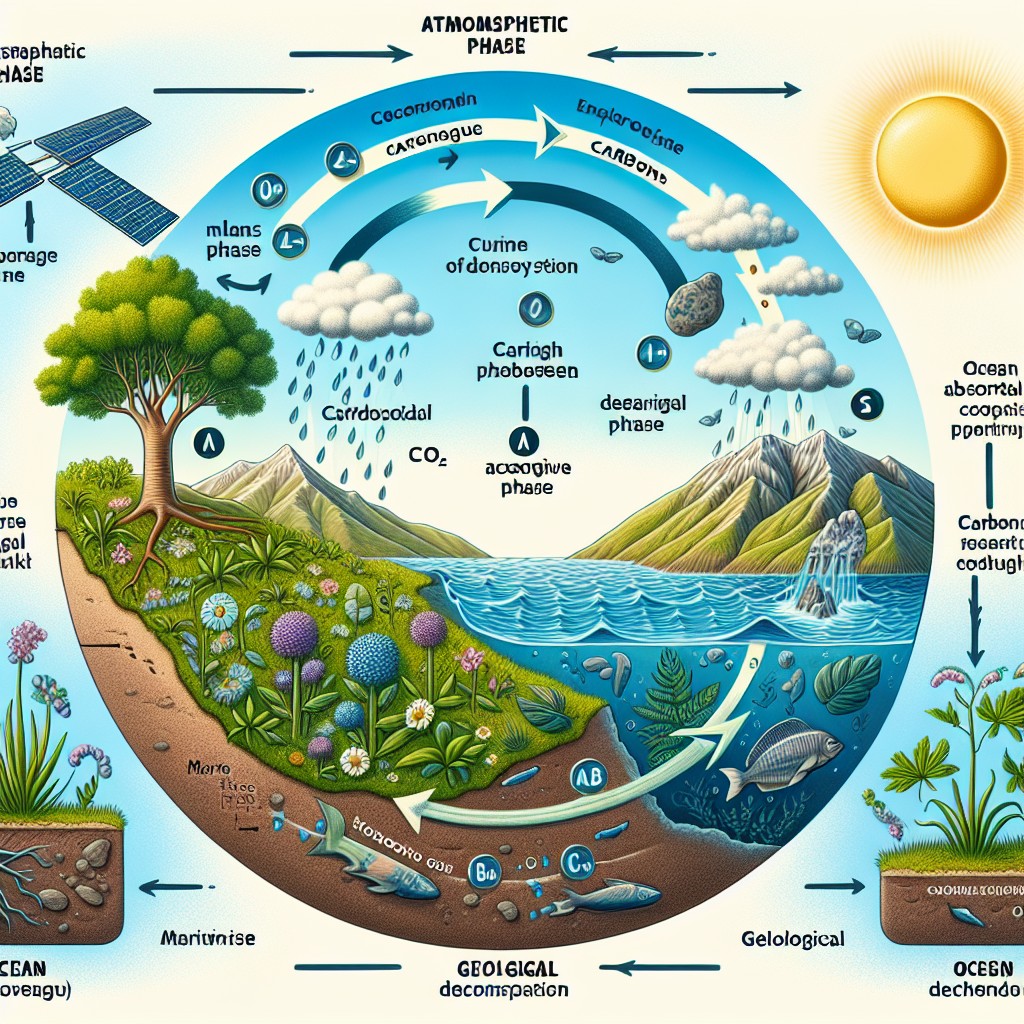Green Chemistry is a scientific approach that focuses on the design and development of chemical products and processes that are environmentally friendly, economically viable, and socially responsible. It aims to minimize the use and generation of hazardous substances, reduce waste, and promote sustainable practices. Green Chemistry is becoming increasingly important in today’s world as we face pressing environmental challenges such as climate change, pollution, and resource depletion.
The principles of Green Chemistry include the use of renewable resources, the prevention of waste generation, the design of safer chemicals and processes, and the use of energy-efficient methods. By adopting these principles, Green Chemistry seeks to minimize the negative impact of chemical products and processes on human health and the environment. It also aims to promote the development of sustainable alternatives that can meet our societal needs without compromising future generations.
Summary
- Green chemistry is a sustainable approach to chemical production that aims to reduce or eliminate the use of hazardous substances and waste.
- Sustainability is a key priority for the UK, with a focus on reducing carbon emissions, improving resource efficiency, and protecting the environment.
- Green chemistry can help to achieve sustainability goals by reducing the environmental impact of chemical production and promoting the use of renewable resources.
- Green chemistry offers several advantages over traditional chemistry, including lower costs, improved efficiency, and reduced environmental impact.
- Green chemistry has the potential to drive economic growth, improve public health, and foster innovation in the UK, but there are also challenges to be addressed, such as the need for investment in research and development.
The Importance of Sustainability in the UK
Sustainability is a key focus in the UK, as it recognizes the need to balance economic growth with environmental protection and social well-being. The UK has made significant progress in promoting sustainability through various initiatives and policies. For example, it has set ambitious targets for reducing greenhouse gas emissions, increasing renewable energy generation, and improving resource efficiency.
Sustainability is important for the UK’s future because it ensures that we can meet our current needs without compromising the ability of future generations to meet their own needs. By adopting sustainable practices, we can protect our natural resources, reduce pollution, and create a healthier and more resilient society. Sustainability also presents economic opportunities by promoting innovation, creating green jobs, and enhancing competitiveness in global markets.
The Role of Green Chemistry in Achieving Sustainability
Green Chemistry plays a crucial role in achieving sustainability by providing innovative solutions to environmental challenges. It offers a framework for designing chemical products and processes that are more efficient, less toxic, and less wasteful. By adopting Green Chemistry principles, we can reduce our reliance on fossil fuels, minimize the use of hazardous substances, and promote the use of renewable resources.
Green Chemistry can contribute to sustainability in various ways. For example, it can help reduce greenhouse gas emissions by developing alternative energy sources and improving energy efficiency. It can also promote resource conservation by designing products that are more durable, recyclable, and biodegradable. Additionally, Green Chemistry can minimize the generation of hazardous waste by developing safer chemicals and processes.
There are numerous examples of Green Chemistry in action. For instance, researchers have developed catalysts that can convert carbon dioxide into useful chemicals, thereby reducing greenhouse gas emissions and providing a sustainable alternative to fossil fuels. Another example is the development of biodegradable polymers that can replace traditional plastics, reducing pollution and waste. These examples demonstrate how Green Chemistry can contribute to sustainability by providing innovative solutions to environmental challenges.
Advantages of Green Chemistry over Traditional Chemistry
| Advantages of Green Chemistry over Traditional Chemistry |
|---|
| Reduced waste and pollution |
| Lower energy consumption |
| Use of renewable resources |
| Improved safety for workers and the environment |
| Cost-effective |
| Increased efficiency and productivity |
| Enhanced product quality |
Green Chemistry offers several advantages over traditional chemistry in terms of environmental and societal benefits. Firstly, Green Chemistry focuses on the prevention of pollution rather than its treatment or cleanup. By designing chemical products and processes that are inherently safer and less polluting, Green Chemistry reduces the need for costly and energy-intensive pollution control measures.
Secondly, Green Chemistry promotes the use of renewable resources and the development of sustainable alternatives to fossil fuels. This reduces our dependence on finite resources and helps mitigate climate change by reducing greenhouse gas emissions. By transitioning to a more sustainable and circular economy, Green Chemistry can contribute to long-term resource security and economic stability.
Thirdly, Green Chemistry prioritizes the health and safety of workers, consumers, and communities. By designing chemicals that are less toxic and processes that are less hazardous, Green Chemistry reduces the risk of accidents, occupational illnesses, and environmental contamination. This not only protects human health but also improves the overall quality of life for individuals and communities.
Green Chemistry and Environmental Protection in the UK
Green Chemistry has a significant role to play in protecting the environment in the UK. By adopting Green Chemistry principles, we can reduce pollution, conserve natural resources, and promote sustainable practices. The UK has already taken steps to promote Green Chemistry through various initiatives and policies.
One example is the UK’s commitment to reducing greenhouse gas emissions. Green Chemistry can contribute to this goal by developing alternative energy sources and improving energy efficiency. For instance, researchers are exploring the use of catalysts to convert carbon dioxide into useful chemicals, thereby reducing greenhouse gas emissions and providing a sustainable alternative to fossil fuels.
Another example is the UK’s efforts to reduce plastic waste. Green Chemistry can help address this issue by developing biodegradable polymers that can replace traditional plastics. These biodegradable polymers can break down naturally in the environment, reducing pollution and waste. By promoting the use of such materials, the UK can protect its ecosystems and marine life from the harmful effects of plastic pollution.
Green Chemistry and Economic Growth in the UK

Green Chemistry has the potential to contribute to economic growth in the UK by creating new business opportunities, promoting innovation, and enhancing competitiveness in global markets. By adopting Green Chemistry principles, businesses can develop sustainable products and processes that meet consumer demand for environmentally friendly and socially responsible solutions.
There are already several examples of successful Green Chemistry businesses in the UK. For instance, there are companies that specialize in developing renewable energy technologies such as solar panels and wind turbines. These technologies not only reduce greenhouse gas emissions but also create jobs and stimulate economic growth.
Another example is the growing market for sustainable packaging solutions. As consumers become more conscious of their environmental impact, there is a demand for packaging materials that are recyclable, biodegradable, or made from renewable resources. Green Chemistry can help meet this demand by developing innovative packaging materials that are both environmentally friendly and cost-effective.
Green Chemistry and Public Health in the UK
Green Chemistry has the potential to benefit public health in the UK by reducing exposure to toxic chemicals, improving air and water quality, and promoting sustainable lifestyles. By designing chemicals that are less toxic and processes that are less hazardous, Green Chemistry can help protect the health and well-being of individuals and communities.
One example is the development of safer alternatives to hazardous chemicals. Green Chemistry aims to replace toxic substances with less harmful alternatives that have similar or better performance. By doing so, it reduces the risk of exposure to harmful chemicals and the associated health effects.
Another example is the promotion of sustainable lifestyles. Green Chemistry encourages the use of renewable resources, energy-efficient technologies, and environmentally friendly products. By adopting these practices, individuals can reduce their carbon footprint, improve air and water quality, and promote a healthier and more sustainable way of life.
Green Chemistry and Innovation in the UK
Green Chemistry has the potential to drive innovation in the UK by encouraging the development of new technologies, materials, and processes that are more sustainable and environmentally friendly. By adopting Green Chemistry principles, businesses can create innovative solutions to environmental challenges and gain a competitive edge in global markets.
There are already several examples of innovative Green Chemistry products and processes in the UK. For instance, researchers have developed new catalysts that can convert carbon dioxide into useful chemicals, thereby reducing greenhouse gas emissions and providing a sustainable alternative to fossil fuels.
Another example is the development of bio-based materials. Green Chemistry aims to replace traditional materials with renewable alternatives that have similar or better performance. For instance, researchers have developed bio-based plastics that are derived from plant sources such as corn or sugarcane. These bio-based plastics can be used in various applications such as packaging, automotive parts, and consumer goods.
Challenges and Opportunities for Green Chemistry in the UK
While Green Chemistry offers numerous benefits, there are also challenges that need to be addressed for its widespread adoption in the UK. One challenge is the cost of implementing Green Chemistry practices. Transitioning to more sustainable alternatives may require upfront investments in research and development, infrastructure, and training. However, these costs can be offset by the long-term benefits of reduced pollution, improved resource efficiency, and enhanced competitiveness.
Another challenge is the need for collaboration and knowledge sharing. Green Chemistry requires interdisciplinary approaches and collaboration between scientists, engineers, policymakers, and businesses. It also requires the sharing of knowledge and best practices to accelerate the adoption of sustainable solutions. The UK can address this challenge by fostering partnerships, supporting research and development, and promoting knowledge exchange platforms.
Despite these challenges, there are also opportunities for growth and development in the field of Green Chemistry in the UK. For instance, there is a growing demand for sustainable products and processes both domestically and globally. By investing in Green Chemistry research and development, the UK can position itself as a leader in sustainable innovation and attract investment from businesses seeking to meet consumer demand for environmentally friendly solutions.
Conclusion and Future Prospects for Green Chemistry in the UK
In conclusion, Green Chemistry plays a crucial role in achieving sustainability by providing innovative solutions to environmental challenges. It offers several advantages over traditional chemistry in terms of environmental and societal benefits. Green Chemistry can contribute to environmental protection, economic growth, public health, and innovation in the UK.
The future prospects for Green Chemistry in the UK are promising. The UK has already made significant progress in promoting sustainability through various initiatives and policies. By continuing to invest in research and development, fostering collaboration, and supporting businesses that adopt Green Chemistry principles, the UK can further accelerate the transition towards a more sustainable and resilient society.
Green Chemistry has the potential to transform our chemical industry and create a more sustainable future for generations to come. By adopting Green Chemistry principles, we can protect our environment, improve public health, promote economic growth, drive innovation, and ensure a better quality of life for all. The time to embrace Green Chemistry is now, and the UK has a unique opportunity to lead the way in this transformative field.
FAQs
What is Green Chemistry?
Green Chemistry is the design of chemical products and processes that reduce or eliminate the use and generation of hazardous substances.
What are the principles of Green Chemistry?
The principles of Green Chemistry include the use of renewable resources, the prevention of waste, the design of safer chemicals and processes, and the use of catalysts.
What are the benefits of Green Chemistry?
Green Chemistry can lead to the development of safer and more sustainable products and processes, reduce the use of hazardous chemicals, and decrease the environmental impact of chemical manufacturing.
What are some examples of Green Chemistry?
Examples of Green Chemistry include the use of renewable resources such as biomass, the development of biodegradable plastics, and the use of catalysts to reduce the amount of energy required for chemical reactions.
How is Green Chemistry regulated?
Green Chemistry is regulated by various government agencies, including the Environmental Protection Agency (EPA) in the United States and the European Chemicals Agency (ECHA) in the European Union.
What is the future of Green Chemistry?
The future of Green Chemistry is promising, as more companies and governments are recognizing the importance of sustainable and environmentally friendly practices. The development of new technologies and materials will continue to drive innovation in the field.


